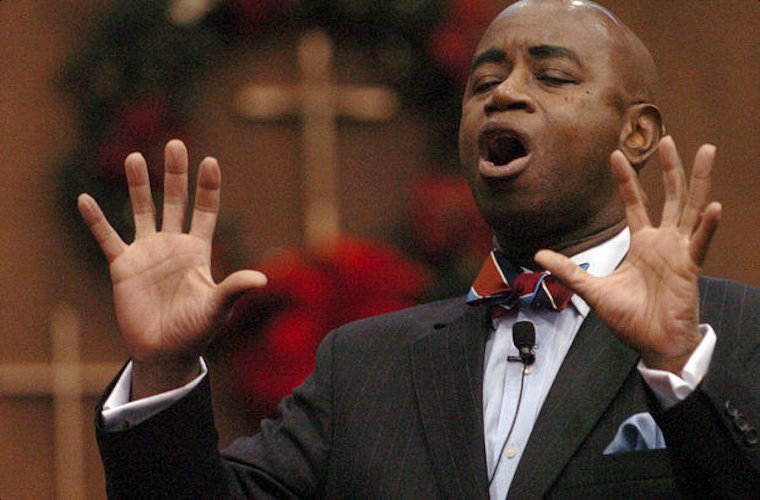There is no doubt that preaching is a noble calling and one which is far more important to God than it is to most people. Preaching is not simply a time-filler in the worship service, nor is it the sharing of personal experiences, no matter how emotional. Nor is it a well-organized “talk” complete with a PowerPoint display designed to give a series of steps to a better life. Nor is it to keep everyone entertained so that they will return next week. However, the presentation should be interesting and not boring. Your messages need to be Holy Spirit Inspired. Be real, be prepared, and be relevant.
Later on, we will train you in how to prepare messages.
Preaching, as the Apostle Paul records, is the vehicle by which the life-giving truth of the Gospel of Jesus Christ is conveyed. We are all called to preach but some are called to preach in Churches on a full-time basis. Lay preaching is not less important than full-time preaching and is sometimes more effective.
Romans 1:16 – The words of the preacher are to be faithful to the Word of God, which is “the power unto salvation for everyone who believes”. Paul’s admonition to the young pastor Timothy was,
2 Tim.4:1-2 “In the presence of God and of Christ Jesus…I give you this charge: Preach the Word…!”
So, there is no doubt the preaching of the Word is of primary importance to God. So must it be for anyone considering entering the ministry as a preacher. How can one be sure he is called to preach? First, there are subjective indicators. If a man has a burning desire within him that cannot be denied, that is a good indication of a “calling” by God.
The Apostle Paul and the Old Testament prophet Jeremiah experienced the same desire. 1 Corinthians 9:16 “Yet when I preach the gospel, I cannot boast, for I am compelled to preach. Woe to me if I do not preach the gospel!” To be “compelled” to preach means to be driven onward by an irresistible and undeniable compulsion to do so. Jeremiah described it as a “burning fire” that could not be stifled Jeremiah 20:8-9. Trying to hold it back made him weary.
(Ephesians 4:11-12 NLT) Now these are the gifts Christ gave to the church: the apostles, the prophets, the evangelists, and the pastors and teachers. Their responsibility is to equip God’s people to do his work and build up the church, the body of Christ.
There are objective indicators of God’s calling to preach. If the response to early efforts at preaching is positive, this is a good indication that the prospective preacher has the gift of ‘didaktikos’, the gift of teaching from the Holy Spirit. Every preacher must be first and foremost a teacher of God’s Word, conveying it in a clear and concise manner and making personal application to the hearers. The church leadership is usually the best determiner of whether a man has this gift. If they are agreed that he does, the prospective preacher should then be examined by the leadership as to his character, as outlined in the requirements for elder (for every preacher is also an elder).
The term “hellfire preaching” does not appear in the Bible, although the concepts of the fires of hell and the necessity of preaching certainly do. Hellfire preaching means different things to different people and conjures up different images, sometimes negative. Those who have a problem with “hellfire preaching” are generally repulsed by even the mere mention of hell, having a universalistic theology, preferring instead to imagine a God whose great love for mankind simply precludes Him from sending people to hell, or even allowing them to go to hell. Today we have seeker-friendly Churches that are scared to mention hell in case they scare people away. On the other extreme are those who see a perpetually angry, wrathful, and vengeful God who condemns people to hell for the sheer enjoyment He gets from it. Both these views of God’s character and hell are biblically insupportable.
Although true preachers of the Word of God have always included the reality of hell in their messages, hellfire preaching has come to be associated with preachers of the 18th and 19th centuries in Europe and America. The image of Puritan preachers is often one of whiskered, black-frocked theological terrorists pounding their pulpits and continually threatening their congregations with eternal burning.
Perhaps the epitome of the image of the hellfire preacher is Jonathan Edwards, whose sermon “Sinners in the Hands of an Angry God” depicted the realities of hell so clearly that it was said the hearers could smell the sulfur burning. However, it is fair to say that Edwards believed strongly not only in the fearful reality of hell, but his duty as a minister to warn people of that reality. “Sinners in the Hands of an Angry God,” when read properly, has a clear emphasis on the mercy of God. It is nothing but God’s mercy that keeps us out of hell, he was saying, and, therefore, we are to ask God for that mercy for salvation.
Is hellfire preaching biblical? Clearly, Jesus taught about hell, and He did so to warn people not to go there. Hell, is depicted in Scripture as a very nasty place from which there is no escape. The punishment of the wicked dead in hell is described throughout Scripture as “eternal fire” (Matthew 25:41), “unquenchable fire” (Matthew 3:12), “shame and everlasting contempt” (Daniel 12:2), a place where “the fire is not quenched” (Mark 9:44-49), a place of “torment” and “fire” (Luke 16:28), a place where “the smoke of torment rises forever and ever” (Revelation 14:10-11), and a “lake of burning sulphur” where the wicked are “tormented day and night forever and ever” (Revelation 20:10). Surely, a loving and compassionate Saviour could not be so described if He failed to warn us about hell. But Jesus is certainly loving and compassionate, and He presented the joys and bliss of heaven and was clear about the only way to attain them. “I am the Way, the Truth, and the Life,” He said. “No one comes to the Father but through me” (John 14:6). The apostle Paul was equally blunt about the fate of those who rejected the gospel of salvation through Christ alone. They are condemned to “everlasting destruction” (2 Thessalonians 1:8-9).
Is there a place for hellfire preaching today? Not only is there a place for teaching about the fires of hell and the only way to escape them, but true preaching of the gospel of Christ is not complete without it. If today’s pastors and preachers are consistent with the Scriptures, preaching and warning their flocks about the fires of hell must be part of their message. Too often, people are invited to come to Christ so He can ‘fix up’ their lives, make their marriages better, or provide health, wealth, and prosperity. But this is not the message of the Bible. We come to Christ for the forgiveness of sin, the very presence of which in all our hearts is a sure one-way ticket to hell. A balanced, biblical message consists of the reality of hell, a warning to escape it, and the only way to do so—through the shed blood of Christ on the cross for our sins. We are then able to access the blessings of God.
A Word of Caution
The anointing for ministry, be it speaking or praying, comes out of being yielded to the Holy Spirit for a specific occasion. However, the way we live our lives also affects the anointing. Our lifestyle should be pleasing to God.
We need to be constantly alert to our sinful tendencies and the ability of our minds to become easily distracted. To put it another way, we need to be disciplined in our daily lives, not by falling into a routine, which would be another trap, but to be increasingly aware of God’s still small voice calling us to prayer, repentance, and/or action.
In preparing ahead of time for ministry we need to be in prayer, to ask God for the infilling of the Holy Spirit, for His anointing and guidance, and to receive prayer from others. So, the anointing comes well before the time of ministry itself and continues until it is over. Even when you no longer feel the anointing, the Lord can touch people.
Satan was anointed before he fell and he lost it. Let us look at that.
Psalms 89:38, “But you have rejected, you have spurned, you have been very angry with your anointed one.”
Ezekiel 28:14, this is talking specifically about the devil. “You were anointed as a guardian cherub for so I ordained you.” God ordained him. “You were on the Holy Mount of God. You walked among the fiery stones.” We do not even know what those fiery stones are. What was that on the Mount of God? Satan, instead of remaining dedicated, humble, and living a holy life, began to worship the anointing. He began to think, “Oh this is me. Why I could be like God. Who does He think He is? Look how anointed I am. I am going to be like God.”
God was so angry! You cannot think that you have something special and you are God’s little pet because God does not allow sin. It does not matter who you are, where you have been, or what you have done, He is not going to let it happen. When He removes that anointing, you know it because you are not very effective.
When it is not the anointing
You have to make it happen. You cannot just walk in the Spirit of God and it happens. You have to keep making it happen and making it happen. You try to obey the Holy Spirit and people at the same time. Instead, just listen to the Holy Spirit. He will give you favor with the right people.
You are concerned that you get the honor. You want people to notice you. You want people to honor you. It is not about that. The Kingdom of God is about God. We are just the people being used by God to help make things happen.
When is it the anointing?
When it comes to a pure heart and pure motives. What does it do in your fight against demons, evil and evil people? It will give you great faith and boldness. When that anointing comes on you, there is a boldness that comes on you and a faith that is beyond any faith you have had. When you share with that kind of anointing on you, people’s lives are changed.
People get blessed and you gain insight into proper training and proper behavior. The training that God gives you in moving in the anointing is more than just the average training that you go through. It is God training you Himself.
It refuses to promote itself. God loves humble people because God is very humble. I think if we could go into the presence of God, we would be shocked at how humble He is because we would be thinking, “You are God. You run everything.” He would be very humble. Why?
Because He does not need to be a big shot, He is a big shot. He does not have to try to impress you. He has nothing to prove. If you think you have lost the anointing, repent and spend time in prayer and it will come back.







